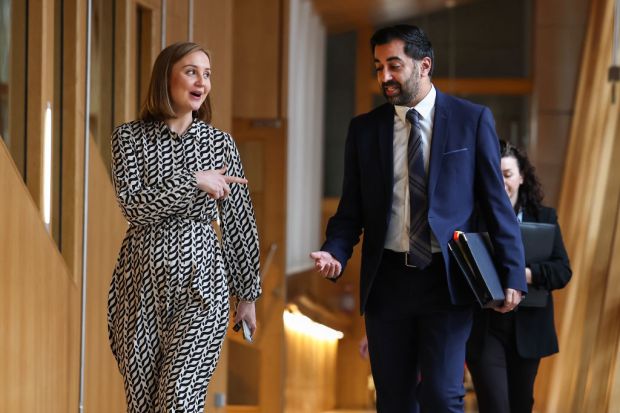The left-green axis has been in uproar in recent weeks because several right-wing commentators have suggested holding a referendum on the government’s net zero measures. If the Telegraph, Sun, and Reform party support it, say critics of a referendum, then it’s got to be a bad idea.
As an environmental campaigner since the 1970s, I say bring it on. Even if the initial impetus for a referendum came from right-wing groups, net zero will affect our livelihoods and basic freedoms for decades. The way to counter accusations that it is the invention of a woke elite is to widen the debate.
What will be the terrain of that debate? And what is the net zero equivalent of the Irish question during the Brexit referendum — the issue that, if overlooked because it suits both sides to do so, will cause a paralysing disconnect between legislation and action?
After decades of environmental campaigners being ignored or derided, it’s hardly surprising the current set of policies devised had some deep-seated flaws. Heat pumps are a case in point. They only work by using a huge amount of electricity. Green advocates also understate the hit to our current standard of living in the coming post-carbon era of reduced consumption and ‘climate justice’.
As with Brexit, the eco-lobby fear voters ‘won’t understand the real issues’. This translates into their failure to make the case for major systemic reform to reduce global warming.
Insulate Britain has taken a blatantly saleable policy (save money and reduce carbon emissions by massive insulation of all buildings) and made it politically toxic. Greenpeace and Friends of the Earth for years promoted the idea that small changes to our consumption patterns and waste-bin arrangements would somehow be enough to see us through the green transition. They did this to placate their mainly urban, mainly graduate supporters.
Boris won Brexit, and the last election, by promising to ‘take back control’. The putative green referendum would also be about power — in both senses of the word. There are many other factors, from food to biodiversity, but energy production is responsible for 75 per cent of all carbon emissions. So who will control energy production?
The Swiss bank UBS puts the cost of cleaning up all power grids on the entire planet by 2050 at between $120 and $160 trillion — financed by taxes and energy consumers — in other words, by us all. The UK, with a 1 per cent share of global emissions, is probably on the hook for $1.4 trillion – about half our annual GDP.
UBS says the huge sum is needed to ‘retool the world’s existing capital base to run on clean fuels’. But what if that capital base, created in the early 20th century, is wrongly constructed for our needs in the 21st century? That is the elephant in the room — the issue that neither side wants to discuss.
A referendum could help decide if we really want to bet the whole trillion on what may prove to be the wrong horse.
This week’s announcements about green finance at COP26, and the dubious promise to ‘quit coal’ skate over the role of the energy companies. Paradoxically they are being tasked with selling less of what they make. That will only work if they are subsidised or nationalised.
Some green campaigners will be advocating decentralised power supplies, known in the trade as micro-grids. Just as the internet revolutionised communications by turning the broadcast one-to-many model into a multicast many-to-many, so the energy grid can be retooled to allow every energy consumer to become a producer.
But BT Openreach turned out to be one of the biggest obstacles to the rollout of high-speed broadband in the UK. National Grid boss John Pettigrew told the Sunday Times last weekend that his company was geared up for the coming multi-directional age. But it’s possible he is gearing up to obstruct it.
It would ‘require a complete reorganisation of the regulatory arrangement for utility services,’ said Subhes Bhattacharyya, Professor of Energy Economics and Policy at De Montfort University.
The area where left and right-wing libertarians may be able to agree is that net zero policies can prevent large corporations skimming a profit if energy production takes place on our rooves. The network for creating and distributing energy will move decisively in the direction of the individual.
Opponents of decarbonisation may have dreamed up the idea of a referendum on net zero — but that doesn’t mean they will win it. Exposing the environmental lobby’s beliefs and arguments to debate can only increase their resilience.<//>
Got something to add? Join the discussion and comment below.
Get 10 issues for just $10
Subscribe to The Spectator Australia today for the next 10 magazine issues, plus full online access, for just $10.




















Comments
Don't miss out
Join the conversation with other Spectator Australia readers. Subscribe to leave a comment.
SUBSCRIBEAlready a subscriber? Log in